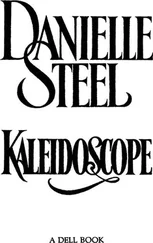J. Janes - Kaleidoscope
Здесь есть возможность читать онлайн «J. Janes - Kaleidoscope» весь текст электронной книги совершенно бесплатно (целиком полную версию без сокращений). В некоторых случаях можно слушать аудио, скачать через торрент в формате fb2 и присутствует краткое содержание. Год выпуска: 0101, Издательство: MysteriousPress.com/Open Road, Жанр: Исторический детектив, Полицейский детектив, на английском языке. Описание произведения, (предисловие) а так же отзывы посетителей доступны на портале библиотеки ЛибКат.
- Название:Kaleidoscope
- Автор:
- Издательство:MysteriousPress.com/Open Road
- Жанр:
- Год:0101
- ISBN:нет данных
- Рейтинг книги:3 / 5. Голосов: 1
-
Избранное:Добавить в избранное
- Отзывы:
-
Ваша оценка:
- 60
- 1
- 2
- 3
- 4
- 5
Kaleidoscope: краткое содержание, описание и аннотация
Предлагаем к чтению аннотацию, описание, краткое содержание или предисловие (зависит от того, что написал сам автор книги «Kaleidoscope»). Если вы не нашли необходимую информацию о книге — напишите в комментариях, мы постараемся отыскать её.
Kaleidoscope — читать онлайн бесплатно полную книгу (весь текст) целиком
Ниже представлен текст книги, разбитый по страницам. Система сохранения места последней прочитанной страницы, позволяет с удобством читать онлайн бесплатно книгу «Kaleidoscope», без необходимости каждый раз заново искать на чём Вы остановились. Поставьте закладку, и сможете в любой момент перейти на страницу, на которой закончили чтение.
Интервал:
Закладка:
Kohler set the carving on the table before him. The gasp the girl gave was real enough. Pale … she had become so very pale. Trembling, she waited but could not seem to take her eyes from the figure.
‘A santon , Hermann. A local custom. There are seventy or so of them, each depicting a traditional occupation in the village. The baker, the woodcutter, et cetera, et cetera.’
‘The herbalist,’ breathed Kohler. ‘Was he treating your epilepsy on the side, mademoiselle, and were you paying him with this?’
Vehemently she shook her head but still could not take her eyes from that thing. ‘For epilepsy there is no cure, and the herbs, they are not sufficient,’ she whispered sadly.
‘Then did you leave it among the rocks?’ he asked.
Again she shook her head. They waited. They gave her time – were genuinely afraid they might well bring on another seizure.
When she got up to leave them, the black beret was tilted to the left. The shepherd’s black, rough cape was linked below her chin and thrown back over the left shoulder.
St-Cyr noted the way she stood before them, defiant, proud but quivering. The rough grey trousers were obviously far too big for her. The black turtleneck pullover was someone else’s too.
He noted the heavy leather belt that could well have held a pistol, a captured Luger or Mauser. Hermann saw it too, but said nothing. Only half stood with sadness, his hands still resting on the table.
‘Messieurs,’ she said. ‘Until we meet again.’
They watched her leave. ‘Jesus!’ exploded Kohler. ‘What the hell was that all about?’
‘A lover, Hermann. In the maquis perhaps, but then … Ah it is far too soon to know.’
St-Cyr stood in the tiny courtyard next to the shorter piece of wall. No place was quite out of the mistral but here the sun was captured so that the soul was warmed.
Weighted under boulders was his laundry. Socks, trousers, underpants, vest and shirt. If anyone should come along – ah, Mon Dieu , they would most certainly wonder what had happened to the Surete.
Wrapped in that magnificent shawl, he stood like Caesar in the shape of a much thinner Balzac. Plump, swarthy perhaps and tough, belligerent when necessary but begrudging of the meagre sponge-bath that had followed the doing of the laundry. Freezing, but refreshed, the mind alert in spite of the lousy night.
Hermann had gone off to find the hearse-driver and arrange for the body and themselves to be transported to the morgue in Cannes. Perhaps an hour was available to himself, perhaps a little more. He must search carefully; he must leave nothing unseen.
Ruefully he looked at the butt of the cigarillo Jean-Paul Delphane had left among the rocks. The juices began to run in his mouth, the pulse to quicken as the temptation of tobacco teased his very being. Should he? Could he?
With guilt, he crumbled the thing into the wind and, going quickly indoors, shut out the morning, shut out the love he had for Provence and the simple pleasure of watching things grow even in winter.
The cottage was very private and intimate in its barrenness. As he moved about, recording detail with the mind’s camera, he caught a broken bit of pottery. ‘Roman,’ he said aloud and asked, ‘Do we ever really come to know each other even during our most intimate of moments?’
There were some Palaeolithic stone chips, a scraper, a flint knife, then a lump of Roman bronze that was flecked with verdigris, and a tiny pale whitish-green bottle – a perfume vial from some Roman lady’s boudoir.
He held the bottle up to the light from the window and marvelled at the iridescent play the work of time created as it destroyed the glass by hydration of the silica, spalling it off a skin at a time, the effect almost opalescent. He brought the bottle to his nose, casting the mind back over the centuries to rhodium (oil of roses), melinum (that of quince blossoms) and metopium (of bitter almonds) yet thinking, too, of Grasse and the essence factories there, the growing of flowers and their distillation. Lavender and mimosa, verbena and narcissi.
Readily he found the fawn-coloured overcoat and pale yellow cashmere scarf hanging on a peg by the door. The coat impressed him, not so much by its quality which was very good, very expensive – of vicuna, and pre-war of course – but as to why she should have worn it while lugging two suitcases into the hills.
The suitcases were sitting under her hat and gloves. The hat, a matching cloche with a bit of pale yellow veil, was totally unsuitable for this time of year. The gloves were leather and pre-war, of summer perhaps or fall. The suitcases were from Louis Vuitton and very, very good. Prewar as well, but looking a little scruffy.
He tried the left pocket, felt the softness of the wool, let the sensuality of its touch race through him. Found a key, a half-used book of Cannes tram-tickets, her papers, ration book – pale pink in colour – bread: 375 grams per day in 25-gram slices, each ticket good for one slice with the meal; cheese: 20 grams if one could get it and it was a day for cheese in the restaurant.
Madame Anne-Marie Buemondi; profession: none; nationality: French; place of birth: Annecy, near the Swiss border and near Chamonix; date of birth: 16 December 1890. Ah Mon Dieu , murdered on her birthday!
Height: 170 centimetres; weight: 68 kilos; hair: blonde, natural; nose: normal, its dimension average; eyes: brown.
A vicuna coat, a woman of some substance but of it now? A birthplace far too close to Chamonix for comfort.
The travel papers and laissez-passer – the much-sought-after ausweis of the Germans – allowed her to travel freely between Cannes and Bayonne on the grounds of medical necessity.
The ausweis was signed by the Generalmajor Harald Riedke of the Kommandantur in Marseille. It was dated 18 November 1942, and he wondered not just why she’d had to go to Marseille to get it but how the hell she’d got it so soon, seeing as the Germans could only have been in the city for a week.
Money? he asked, not liking the drift, or a forgery?
Two addresses were given, and neither would have raised any eyebrows among the Occupying Forces or the Vichy police. The villa in Le Cannet was certainly not given, simply a house in Bayonne on the Quai des Corsaires, and another on one of the back streets in Cannes at the foot of the hills. Again he had to wonder about her.
The other pocket held a thin bundle of thousand-franc notes – ten of them, a few fives, one fifty, a handful of change, lipstick, compact, handkerchief, and a beechwood bobbin.
St-Cyr drew in a breath, his nostrils pinching in thought as he held the bobbin. It was wound with four or five strands of russet wool, the nuances of colour ranging from a rich, dark, earthy shade to that of autumn’s pale whisper among old leaves. There were flecks of sunlight too, that made the wool almost glisten with gold in places.
He brought the bobbin to his nose and drew in the smell of the wool. Hand-carded and spun. This one used only the stuff of the hills and she dyed it herself. But she was not the wearer of the coat.
Quickly he ran his hands up under the lapels and when he found the enamelled pin, stopped his heart and listened to the wind outside before removing it. The Cross of Lorraine, the newly taken symbol of the fledgeling Resistance, of those who secretly were for de Gaulle and the Forces of the Free French in London.
Though he tried, he could not see Madame Anne-Marie Buemondi having been so foolish as to have worn such a thing. And he knew that, for the moment or all time, he could not possibly tell Hermann of it.
When he came to the mirror, which hung on the wall above the bureau, his troubled mind caused him to pause. The frame was wide and of flaking gilt, the glass rectangular and bevelled, the thing of a size just sufficient for one to view the face and hair perhaps, or the bodice by standing on the tiptoes. In places the silver backing had vanished, leaving triangular slashes; in others, it had attained almost coppery hues. The mirror was obviously something bought in one of the country flea markets. Yes, yes, he said impatiently. So she wanted a little something primitive and simple in her life, and she bought this cottage and the adjoining land as a retreat.
Читать дальшеИнтервал:
Закладка:
Похожие книги на «Kaleidoscope»
Представляем Вашему вниманию похожие книги на «Kaleidoscope» списком для выбора. Мы отобрали схожую по названию и смыслу литературу в надежде предоставить читателям больше вариантов отыскать новые, интересные, ещё непрочитанные произведения.
Обсуждение, отзывы о книге «Kaleidoscope» и просто собственные мнения читателей. Оставьте ваши комментарии, напишите, что Вы думаете о произведении, его смысле или главных героях. Укажите что конкретно понравилось, а что нет, и почему Вы так считаете.












